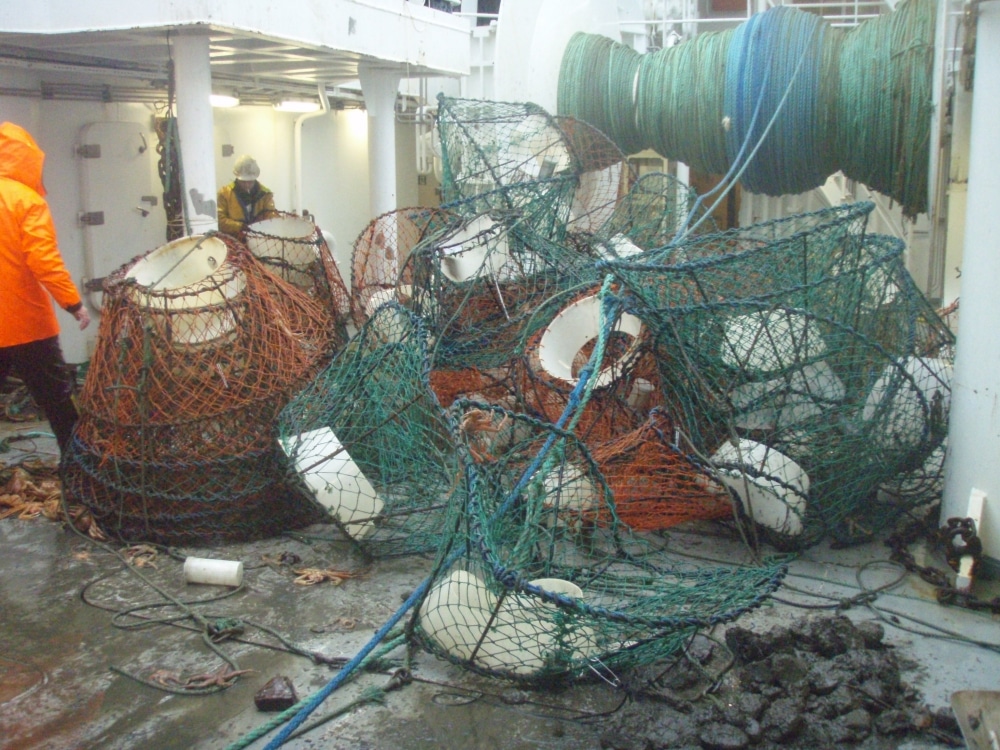Jun. 2023
Norway’s Annual Fishing Gear Recovery Program
Norway has gained recognition for its commitment to sustainable fisheries management and environmental conservation. One notable initiative undertaken by the Norwegian government is the annual fishing gear recovery program. This program aims to combat ghost fishing by actively retrieving lost or abandoned fishing gear from Norwegian waters. In this article, we delve into the key features and successes of Norway’s annual fishing gear recovery program, while also exploring the potential impact of integrating the PingMe system into their efforts.
Program Objectives and Scope: The primary objective of Norway’s annual fishing gear recovery program is to locate and recover abandoned, lost or discarded fishing gear (ALDFG), including nets, lines, and traps, which can contribute to ghost fishing. The program strives to reduce marine pollution, protect marine species, and ensure the sustainability of fisheries by removing gear that poses a threat to the marine ecosystem.

Collaboration and Partnerships: The success of the fishing gear recovery program relies on strong collaboration between government agencies, fishing industry stakeholders, and environmental organizations. The Norwegian Directorate of Fisheries coordinates the program in partnership with local municipalities, fishing vessel owners, and volunteer divers. Through this collaboration, a comprehensive and efficient effort is made to retrieve ghost gear from various coastal and offshore areas.
Implementation and Methodology: The fishing gear recovery program is typically carried out during specific periods, such as the summer months when favorable weather conditions facilitate diving and vessel operations. While the program primarily relies on self-reported coordinates of lost gear, there is potential for improvement by incorporating innovative systems like PingMe. By integrating the PingMe system, which utilizes advanced tracking technology, the program can enhance its ability to locate and recover lost gear more efficiently.
Responsible Disposal and Recycling: Recovered fishing gear is handled responsibly to minimize environmental impact. The Norwegian government emphasizes the importance of proper disposal methods, including recycling whenever feasible. Recycling programs ensure that recovered gear is repurposed into raw materials, contributing to waste reduction and the promotion of a circular economy.
Positive Environmental Impacts: Norway’s annual fishing gear recovery program has made significant strides in mitigating the impact of ghost fishing. By actively removing ghost gear from the marine environment, the program helps safeguard marine life from entanglement and habitat destruction. Moreover, it reduces the risk of marine pollution caused by the degradation of fishing gear materials.
The Potential of PingMe: As part of ongoing efforts to enhance the fishing gear recovery program, integrating innovative tracking systems like PingMe can offer substantial benefits. By leveraging PingMe’s advanced tracking technology, the program can potentially increase the recovery rate of lost gear to 100%. The real-time tracking capabilities of PingMe would streamline the process of locating and retrieving gear, saving time and fuel costs while ensuring more effective results.
Norway’s annual fishing gear recovery program serves as a commendable example of proactive measures to combat ghost fishing and protect marine ecosystems. Through collaboration, effective implementation, and responsible disposal practices, the program has successfully reduced the negative impacts of lost or abandoned fishing gear. By embracing innovative tracking solutions like PingMe, the program can further optimize its efforts, increasing the recovery rate and efficiency of gear retrieval. Norway’s commitment to preserving its marine resources sets an inspiring precedent for other countries seeking to protect their valuable natural ecosystems.